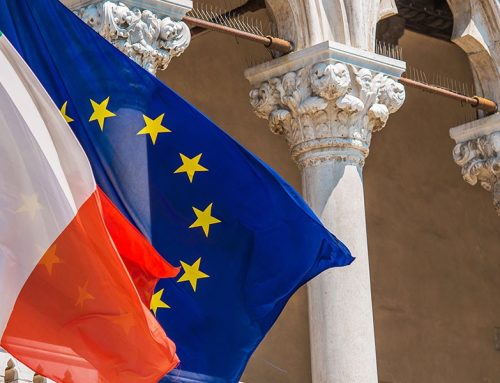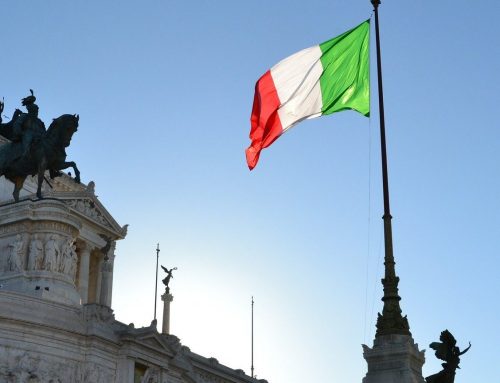An Interview with Marco Oldrati, new Director of Operations of the Italian association Assofrigoristi
 In June, following the resignations of Gianluca Degiovanni as President and Marco Masini as Chief Operating Officer of Assofrigoristi, the Association elected its new management team: Fabio Brondolin was appointed President of the Association by the Board of Directors. The Presidency also includes directors Valentino Verzotto, Franco Faggi, Alberto Manzi, Maurizio Andreaus and Gianluca Degiovanni (outgoing President and member by right). Marco Oldrati, journalist and marketing consultant, with specialization in refrigeration and air conditioning, was identified by the Presidency as the new Director of Operations.
In June, following the resignations of Gianluca Degiovanni as President and Marco Masini as Chief Operating Officer of Assofrigoristi, the Association elected its new management team: Fabio Brondolin was appointed President of the Association by the Board of Directors. The Presidency also includes directors Valentino Verzotto, Franco Faggi, Alberto Manzi, Maurizio Andreaus and Gianluca Degiovanni (outgoing President and member by right). Marco Oldrati, journalist and marketing consultant, with specialization in refrigeration and air conditioning, was identified by the Presidency as the new Director of Operations.
This is a new chapter for the national representative association of installers and refrigeration technicians, which begins at a very special moment. The sector is to face numerous changes: amid the revision process of the F-gas Regulation, of the definition of measures to comply with the objectives of the European Green Deal; and in a European crisis – not only Italian, for the generation gap in a sector that the recent pandemic proved to be more essential than ever.
Of course, changes can be opportunities and the newly formed Assofrigoristi committee seems to want to take full advantage of the arising opportunities and move forwards in the next few years. The new Operating Director Marco Oldrati says: “The Association needs to regain its strong training vocation and identity within our profession and to become a reference point for training, support and assistance on technical issues that are of concern for its Associates”. Oldrati is firmly convinced of one thing: the Association possesses large capital of expertise and knowledge, which may be unstructured but is nevertheless there. The new Board will have to revitalize these skills so that the Associates can make the most out of them, in all possible situations. How concretely? There are many ways to pursue this, but first and foremost a change in mentality is necessary.
Start thinking in a supply chain perspective
In order to successfully face the challenges of our era, refrigeration technicians need to adopt a supply chain point of view, both in terms of skills and of concerted actions and choices: “We need to rethink the refrigeration technician, not only as someone who installs and maintains systems that others manufacture, but as one who is in charge of the operation of the machines and can therefore put to practice the innovations and optimization that producers designed. A refrigeration technician is to become aware of being instrumental in transferring innovation and research from the factory to the field. Designing machines for optimal results in ideal conditions is not sufficient, if maintenance is not carried out in a way that guarantees such results. Today, machines can “talk to each other”, can be managed remotely, are able to integrate multiple functions and multiple energy sources. Machines can really do a lot, as long as one knows how to make them do that. This is why I believe that we must close the gap between producers and installers: the manufacturer and the installer should work side by side, from the very beginning of each specification” says Oldrati.
Keyword: training
It’s true: today, machines know how to meet the requirements of today’s challenges. But do refrigeration technicians know enough about this? This is a legitimate question in a country which, despite a vast local expertise, does not have adequate training centres spread throughout the national territory that can effectively respond to the demand of the sector. It is a legitimate question in a country where the professional education of refrigeration technicians is not regulated and is often managed by a generation who is not familiar with the concepts of environmental sustainability, TEWI, energy efficiency, integration of functions, cloud and remote control. “Training is definitely one aspect on which the Association is going to work hard to improve territorial structure and distribution of schools for refrigeration technicians. A few important steps have been taken in the past. The training experience with the Galdus school, the creation of the Magenta school, the collaboration with the Meucci institute in Florence are all valuable experiences upon which we should continue building. That is our starting point to ideally develop training programs in line with the time and with the technology and distributed over the territory, particularly in regions that are more in need for cold. Think about Piedmont for the preservation of meat, Romagna for the preservation of fruit, the North-East, etc.”.
Interactions with manufacturing companies
If we recall correctly, the path opened in Magenta was facilitated by the generous contribution of an associated company that provided machines, technology, and skills … “That’s correct! And this is precisely the type of dialogue that we will strive to initiate with other companies. Collaboration with companies, as far as possible, is key to train the future generation of refrigeration technicians, because the innovation taking place within the company, the new technologies and the new machines are to become the subject of study and training for refrigeration technicians. If this should not happen, we will have a gap between what the machines can do and the skills of the people who are to operate them”.
The transition to “green cooling” requires the support of the State
A study by the magazine ZeroSottoZero (unpublished) analysed the support offered by the State to the cooling sector in Italy, to facilitate the ecological transition. The picture that emerged is a sort of “desert of the Tartars”: in Italy, there seem to be no funds to support a refrigeration transition towards a “green” model, at least according to Ministry of Ecological Transition (Ministry of Economic Development did not answer our questions). If we consider the abundance of assets in the refrigeration sector in Italy, the situation is rather worrying. The new Italian Recovery Plan does not improve the situation either, because it does not pay attention to the issue of thermal energy management. “If we do not focus on thermal energy – both cold and heat, particularly for redevelopment, we will face the colossal risk of not reaching the 2030 and 2050 objectives, of not using the available resources in a coherent and systematic way and we will continue paying absurd energy and environmental bills. If the Ministry of Economic Development misses this train, the Italian refrigeration industry may dream of glory in the export, while Italy will remain a secondary market and will likely risk of becoming the periphery of Europe”. Europe, on the other hand, very well understood the wealth of skills available in Italy. It is no coincidence that many foreign multinationals in recent years have “shopped” in Italy, where they have left the research and development centres that draw on all-Italian know-how and expertise. “I believe that it is now necessary, more than ever, that the entire Italian refrigeration sector sit around a table and create a shared front to request for what it deserves: the tools to be able to carry out the ecological transition. No single company or association in Italy has the numbers nor the tools to deal, alone, with the change that is taking place. We need a unity in the sector”.
Italy-Europe
Assofrigoristi has been a member of ASERCOM for some years now. What is it going to change in the relations with ASERCOM? How are you going to realise the concepts you have expressed above? “The cooperation with ASERCOM is very valuable to us. The Association, in fact, provides professional and appropriate information at a European level. We will continue to cooperate with ASERCOM in a bidirectional way. From ASERCOM we have a lot to learn but we can also give a lot and this possibility of exchange is in my opinion the best starting point for a profitable cooperation”.







